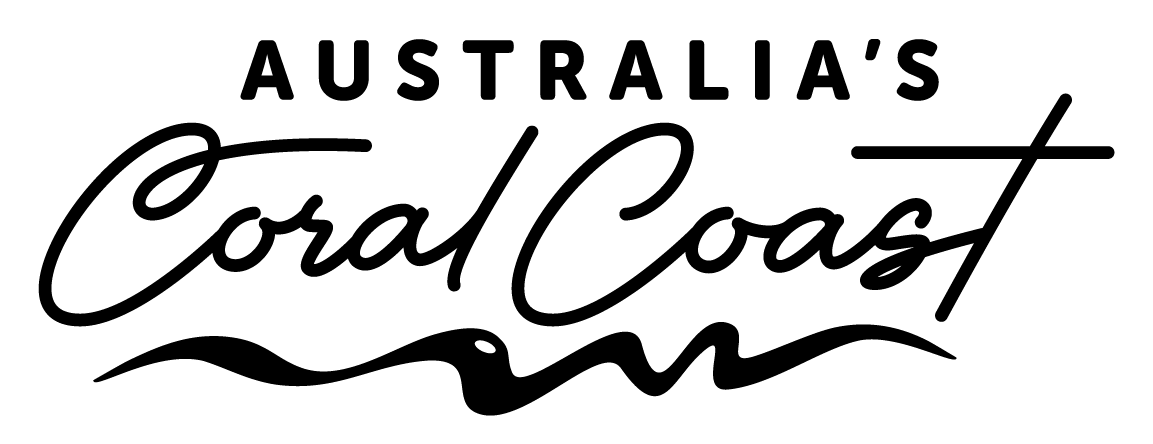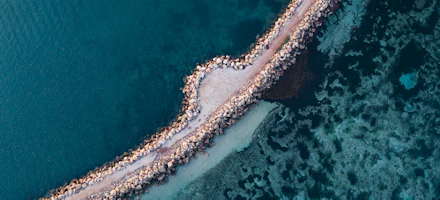
Plan
To help you plan your Coral Coast holiday, we've made it simple.
The best time to visit:
We generally say the best time to visit the Coral Coast is between March to October. This is due to the weather being dry, mild heat and the majority of our seasonal experiences/tours happen between these months.
Key Travelling Resources
Here are all the resources you'll need, including Australia's weather/seasons; how to travel by air, road or water; booking accommodation and tours; plus more. And of course, a map to help you get around!
Western Australia has 192,000km of unique and contrasting road conditions. The variation can be challenging for even the most seasoned drivers, while small differences in road laws between other countries can have significant safety implications.
Ensure you’re well advised and prepared. Familiarise yourself with our travel safety tips and emergency information before you set off on your journey through Western Australia’s Coral Coast. To help keep you safe, the Western Australian Road Safety Commission produces a Guide to Driving on WA Roads. This free booklet is essential reading for those getting behind the wheel and hitting our roads. It includes helpful information about Western Australian road rules and tips for driving in urban and regional areas.
Guide to Driving on WA Roads - English booklet
Guide to Driving on WA Roads - Arabic booklet
Guide to Driving on WA Roads - Chinese (Mandarin) booklet
Guide to Driving on WA Roads - French booklet
Guide to Driving on WA Roads - German booklet
Guide to Driving on WA Roads - Italian booklet
Guide to Driving on WA Roads - Japanese booklet
Guide to Driving on WA Roads - Korean booklet
Guide to Driving on WA Roads - Malay booklet
If you are towing a caravan or trailer it is best not to try and overtake at all. Wait for an overtaking lane, where it is safe to do so. Learn more via the "Visitors to WA" Road Safety Commission website.
Wandering stock and wildlife
Many cattle stations are unfenced and it is not uncommon to encounter wandering stock and wildlife. Watch out for kangaroos, cows and various other animals, particularly at dawn and dusk, as these are the most dangerous times.
For further information, please contact RoadWise on 08 9213 2066 or visit the Road Safety website.
Important Information to Consider

School and Public Holidays
On average, Western Australia’s Coral Coast has 10 public holidays per year, most of which commemorate landmark Australian historic events, or religious celebrations. Find out more about school and public holidays.

Conservation on the Coral Coast
Help protect the beautiful natural landscapes and unique wildlife of Western Australia's Coral Coast for future generations. Find out how you can minimise the impact of your visit by considering these conservation tips.

Plan Using our Itineraries
Our suggested itineraries are the perfect guide to help plan your next Coral Coast adventure. Whether you choose to fly, drive or a combination of both, each of our carefully curated itineries suit a range of schedules so all you have to worry about is what to pack. Find out more here.

Travel Times and Distances
Get organised and plan your trip with our travel times and distances guide.

Free Holiday Guide
Download our free holiday guide so you have everything you need for your Coral Coast trip at the tip of your finger.

Download our maps
Click here to download a range of useful maps to assist with your travels throughout the region.

National Park Pass
Australia's Coral Coast is home to an array of picturesque National Parks, get organised before your trip and purchase your National Park Pass here before you leave.

FInd out what's on
Keep up to date with events happening in the region here and see if they line up with your travels.

Your Furry Friends
It's important to plan ahead if you want to bring your pet with you on your travels. We've made it easy by compiling a list of all pet-friendly operaters, accomodation providers and tours within the region, find out more here.
Health and safety
Healthy travelling
Always carry adequate supplies of water and a comprehensive first aid kit. Mosquitoes can carry diseases such as encephalitis and Ross River fever. Use appropriate insect repellents and cover arms and legs with loose clothing, particularly at dawn and dusk. Some areas of the Coral Coast are remote so be sure to take medicines with you.
Bushfire safety
The hot and dry conditions in parts of Western Australia’s Coral Coast mean there is a risk of bushfires. The lighting of fires can be extremely dangerous, care should be taken at all times and a campfire should never be left unattended. Safety information is available from Fire and Emergency Services Authority of Western Australia (FESA).
Cyclone safety
Cyclones can affect Western Australia's Coral Coast during the summer months - generally from December to March. Tropical Cyclone Advices are issued on local TV and radio stations whenever a tropical cyclone is expected.
Read tide charts
Before entering the water, take note to see if there are any signs warning of rip tides.
Please be careful at the following locations:
- Turquoise Bay (drift snorkelling) in Cape Range National Park, Exmouth
- The Blowholes (king waves), Carnarvon
- Quobba Station (king waves), Carnarvon
If you are undertaking any activity by the water, check the local tide charts, available at visitor centres and service stations.
Sun protection
The sun is almost always shining on Australia's Coral Coast so ensure you're sun smart, particularly between 10:00 am and 3:00 pm when UV radiation is most intense. Travellers should always wear a wide-brimmed hat, long-sleeved shirt, sunglasses and at least an SPF 15+ sunscreen when outdoors. It is also recommended that you drink at least two litres of water each day.
Safety at the Beach
- Always swim or surf at a beach patrolled by lifesavers
- Swim between the red and yellow flags, they mark the safest areas to swim
- Always swim under supervision, or with a friend
- Read and obey the signs
- If you are unsure of conditions, ask a lifesaver
- Don't swim directly after a meal
- Don't swim under the influence of alcohol or drugs
- Don't run and dive in the water
- Conditions change regularly; check before you enter the water
- If you get into trouble in the water, don't panic - signal for help, float and wait for assistance
- Float with a rip current or undertow, do not swim against it!
Emergency Contact Numbers
Emergency information and important contact numbers you should take with you as you travel around Western Australia's Coral Coast can be found below.
We recommend downloading the Emergency+ app to your phone. The Emergency+ app is a free app (Apple, Android and Windows) developed by Australia's emergency services and their Government and industry partners.The app uses GPS functionality built into smart phones to help a Triple Zero (000) caller provide critical location details required to mobilise emergency services
| Fire/Police/Ambulance | 000 |
| Fire/Police/Ambulance from GSM mobile phone | 112 |
| Exmouth and Coral Bay Police | 08 9947 8700 |
| Carnarvon Police | 08 9941 7900 |
| Shark Bay Police | 08 9948 1201 |
| Kalbarri Police | 08 9936 3000 |
| Geraldton Police | 08 9923 4555 |
| Dongara-Port Denison Police | 08 9955 9300 |
| Jurien Bay Police | 08 9652 0600 |
| Royal Flying Doctors Service (State-wide) | 1800 652 800 |
| Automobile Association of Australia | 13 11 11 |
| Parks and Wildlife - Marine helpline | 08 9483 6462 |
| Parks and Wildlife - Wildcare helpline or Fire Management in National Parks (for sick, injured or orphaned native animals) | 08 9474 9055 |
Mobile phone coverage is limited (generally only Telstra if available) and if you are in a life-threatening situation, please contact: State Emergency Services via text/SMS +61417097330.
Road Conditions
| Main Roads (24 hours) | 138 138 |
| Fire and Emergency Services | 1300 657 209 or http://www.dfes.wa.gov.au/ |
| Bureau of Meteorology Weather Warnings | 08 9949 2436 or http://www.bom.gov.au/wa/warnings/ |
The Main Roads WA road closures map is the best source of information on road closures across the State providing information on access due to roadworks or weather conditions.
Non-emergency Contact Numbers
| Police | 131 444 |
| Ambulance | 08 9334 1234 (non-emergency transport) |
| Fire Services of WA | 1800 199 084 (general enquiries) |
| State Emergency Services | 1300 130 039 |



























